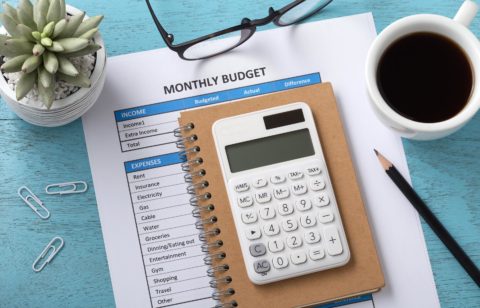If you feel as if you’re being crushed by your student loans, you’re not alone. Americans have racked up almost 1.3 trillion – yes, that’s trillion with a T – in student loan debt. This is more than all consumer debt and even more than all credit card debt. Whether or not this represents a crisis is debatable but one thing is certain. If you can’t pay off your loans it will certainly be a problem for you.
Should you pay for help?
Another thing that’s certain is that you will ultimately have to pay off your student loans. The alternative – to default on them – has seriously severe consequences. While there are companies ready and anxious to help with your student loans they charge for their services. But you don’t have to pay some company to help with your student loans. There are numerous ways to get help with those loans that’s free.
A new playbook is coming soon
The Consumer Financial Protection Bureau is in the process of finalizing a new program that it calls Payback Playbook. Its purpose is to help people with student loans get a better idea of how their loans work and their options for repayment. In addition, this Bureau also has a handy guide to repaying student debt.
The government’s debt relief options
Our government offers a number of different ways for you to consolidate, defer or even get certain student loans forgiven. The catch here is that they must be loans you got from the government. Loans from a private company like a bank are not eligible. Plus, you might have to commit to a job in public service.
Forbearance or deferment
If you’re having a really hard time making payments on your student loans the first thing you should do is contact your loan service and ask for a forbearance or deferment. The details of these two options differ but what they have in common is that they will get your payments suspended for a period of time.
If you can get a deferment the federal government may even pay your interest during the time your loan is being deferred. However, to qualify for deferment you typically need to be unemployed, in school or in the military. In comparison, forbearances can be either discretionary or mandatory. To be eligible for forbearance you must be in the catch-all category of having a “financial hardship”.
Loan consolidation
Loan consolidation won’t eliminate your payments but it could lower them by lowering your interest rate. If you have multiple federal loans you could get what’s called a Direct Consolidation Loan. This would turn all of those monthly payments into one loan and probably with a lower payment amount. The interest rate on one of these loans is fixed for the life of the loan. It’s based on the weighted average of the interest rates on your current loans rounded up to the nearest 1/8th. If you think loan consolidation might be helpful you will need to contact your loan servicer to determine what your new interest rate would be under a Direct Consolidation Loan vs. the interest rates you’re currently paying.
If you’d like to know about the pros and cons of loan consolidation with examples of how it works, here’s a brief video you should definitely watch.
Move to a plan with a longer-term
When you graduated from college you were automatically put into the standard government repayment plan, which is for 10 years. However, this is not your only option. There are other repayment plans for as many as 20, 25 or, in the case of a consolidated loan, 30 years. If you choose a plan with a longer repayment term you will have lower monthly payments but you will pay more interest over the term of the loan.
Choose income-based repayment
In addition to payment plans with longer terms the government offers what are called income-based repayment plans. There are currently five of these.
- Income-based repayment
- Pay As You Earn Repayment (PAYE)
- Revised Pay As You Earn Repayment (REPAYE)
- Income-contingent Repayment
- Income-sensitive repayment
What all five of these plans have in common is that your monthly payments would be tied to your income. This can be especially helpful if you are stuck in a low-wage job. You may need a partial hardship to qualify for some of these programs but if you make your payments for 20 to 25 years any remaining debt will be forgiven.
The newest program
REPAYE is the newest of the five income-based repayment plans. It went into effect on December 17, 2015 and is open to any borrowers regardless of when they got their loans. According to the US Department of Education REPAYE should provide assistance to an additional five million people.
Public Service Loan Forgiveness
You must have Direct Loans to qualify for this program. It forgives any debt you have remaining after you’ve worked for 10 years in the public service sector. Public service means you need to work for a nonprofit agency that qualifies or a government entity. You must also make 120 full- and on-time loan payments while working in the public service sector.
Loan forgiveness for teachers
There is a program called the Stafford Loan Forgiveness Program for Teachers. This program has eligibility requirements that are fairly complex. However, the primary requirement is that you must teach for five consecutive years full-time in a low-income school that qualifies. There is a similar forgiveness program for those with Perkins Loans.
State programs
There are some states that have loan forgiveness programs for doctors, teachers and other professionals. For example, there are states, including New York and Minnesota, that recently initiated programs designed for their residents that need help with their student loans. To see if your state offers a comparable program you will need to check with its Department of Education.
If you find the process overwhelming
It costs nothing to apply for any these programs and in most cases all you need to do is send in an email, make a phone call or complete a form. However, if you find the process to be totally overwhelming and feel that you need help there are numerous for-profit companies that will provide assistance although some charge exorbitant prices. In fact, some charge hundreds of dollars just to fill out and submit the same forms you could do your own and submit for free. Some of these companies may outright lie and at least two of them have been sued for fraud related to student loan consolidation.
If you feel you need third-party help don’t sign up with any company without first checking it out with the Better Business Bureau and reading its online reviews. Be especially wary about any company that insists you quit paying on your loans while it negotiates your debt. This would be a sure path into default on your loans and, as you read earlier, the consequences of defaulting on a federal loan are very severe.





